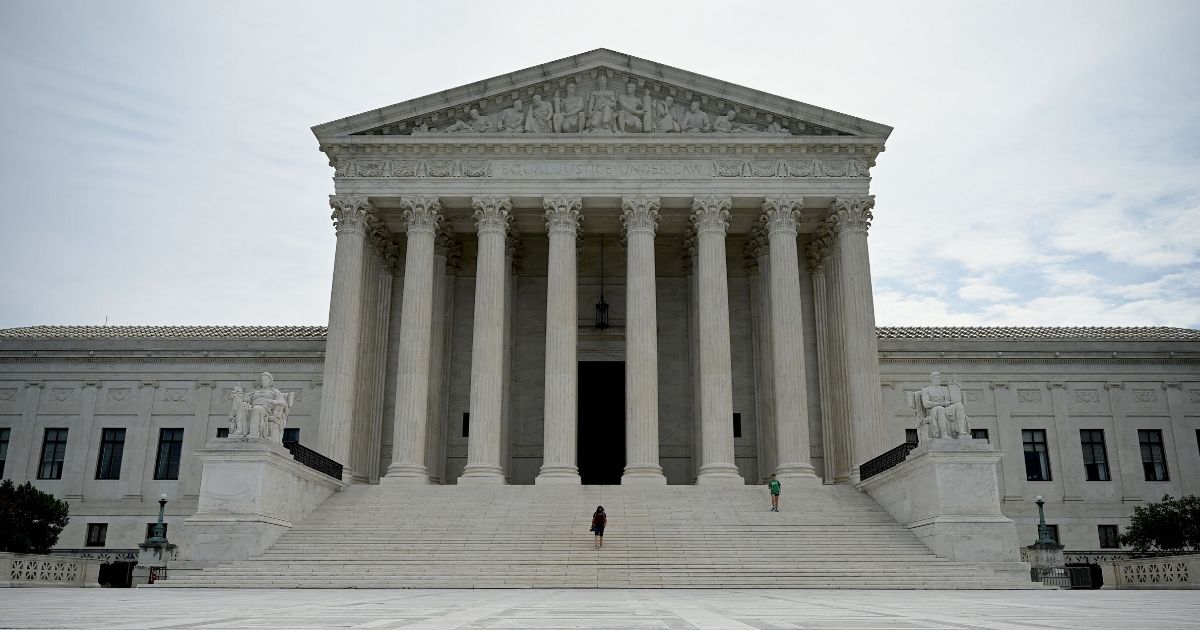
Op-Ed: Why You Should Worry About the Supreme Court’s Disturbing Ruling on the First Amendment
Just before the stroke of midnight on May 29, while protests and riots against the murder of George Floyd raged across America, the Supreme Court issued one of this year’s most important rulings on the First Amendment.
Unfortunately, few people were paying close attention.
In a 5-4 decision in South Bay United Pentecostal Church v. Newsom, the court ruled against a California church’s appeal to lift the state’s limits on religious services due to COVID-19.
The church’s argument is that the lockdown is unconstitutional because it violates the First Amendment right to assemble and worship. The restrictions — which limit services to 25 percent of a church’s capacity or 100 people, whichever is less — place an unconstitutional burden on religious freedom.
While Costco, Target, liquor stores and others are deemed “essential” and allowed to open, burdensome restrictions in California (and in other states) are still forcing churches to be limited to their attendance while also requiring strict guidelines to be followed.
More than 1,500 churches in California decided they had obeyed the state long enough, and they publicly opposed Gov. Gavin Newsom’s order by safely opening their churches on Pentecost Sunday, May 31. They held onto their belief that believers should gather together as the church (Hebrews 10:25), and utilized their First Amendment right, which protects religious gatherings.
Still, the Supreme Court disregarded the First Amendment with this recent decision, overriding the right to gather of not only churches but also other centers of worship. Here are three reasons why this decision should disturb every American who cares about religious liberty.
1. The court could have remained silent.
As Andrew McCarthy wrote for The Hill, the Supreme Court could have declined to issue an injunction, an approach the court historically has taken when dealing with weighty constitutional issues.
Instead, late on a Friday night, before churches were set to gather on Sunday in California, Chief Justice Roberts cast the deciding vote against the right of the church’s members to assemble. He wrote a two-page opinion explaining his position.
By choosing to weigh in on the issue at this time, Chief Justice Roberts sent a powerful message to governors and local authorities that they have the authority to close churches. It was an unprecedented action in American history in light of the First Amendment of the Constitution.
2. The court sees no difference between concerts and church.
In his opinion, Chief Justice Roberts argued, “Similar or more severe restrictions apply to comparable secular gatherings, including lectures, concerts, movie showings, spectator sports, and theatrical performances, where large groups of people gather in close proximity for extended periods of time.”
In other words, Chief Justice Roberts said churches are no different than a concert or other public gatherings.
He continued, “Our Constitution principally entrusts ‘[t]he safety and the health of the people’ to the politically accountable officials of the States ‘to guard and protect,’” and added
“When those officials ‘undertake[ ] to act in areas fraught with medical and scientific uncertainties,’ their latitude ‘must be especially broad.’ … Where those broad limits are not exceeded, they should not be subject to second-guessing by an ‘unelected federal judiciary,’ which lacks the background, competence, and expertise to assess public health and is not accountable to the people.”
Yet isn’t that exactly the role of the court, to second-guess decisions that may be unconstitutional?
Justices Thomas, Alito, Gorsuch and Kavanaugh dissented.
In his dissenting opinion, Justice Kavanaugh wrote, “[A]bsent a compelling justification (which the State has not offered), the State may not take a looser approach with, say, supermarkets, restaurants, factories, and offices while imposing stricter requirements on places of worship. The State also has substantial room to draw lines, especially in an emergency. But as relevant here, the Constitution imposes one key restriction on that line-drawing: The State may not discriminate against religion.”
3. The Supreme Court’s newest swing vote may not always vote on the side of religious liberty.
For a long time, both the political right and political left have speculated on how Chief Justice Roberts would rule on key issues such as religious freedom. Through this recent injunction, Americans have been given a window into how he will likely rule in the future.
This is why the next appointment to the Supreme Court is so important, because he or she will determine the direction of the court for decades to come.
There are two important steps each of us can take right now to help uphold the First Amendment and defend religious freedom:
Pray. Do not underestimate the power of prayer. We must pray for another stronger case to reach the Supreme Court so our justices will uphold the First Amendment and protect places of worship.
Second, we need to make sure every American who believes in religious freedom is committed to voting this November. The president we elect in the fall could have the opportunity to appoint the next Supreme Court Justice.
Unfortunately, statistics tell us one out of every four self-identified Christians will not vote in the election. We must change this narrative if we want to preserve freedom for ourselves and for the next generations to come.
The views expressed in this opinion article are those of their author and are not necessarily either shared or endorsed by the owners of this website. If you are interested in contributing an Op-Ed to The Western Journal, you can learn about our submission guidelines and process here.
Truth and Accuracy
We are committed to truth and accuracy in all of our journalism. Read our editorial standards.
Advertise with The Western Journal and reach millions of highly engaged readers, while supporting our work. Advertise Today.












